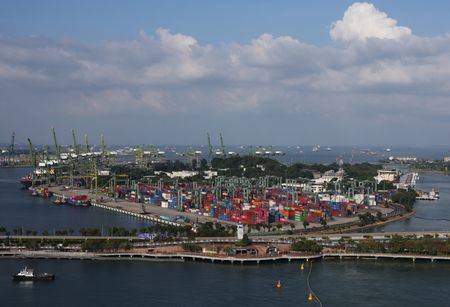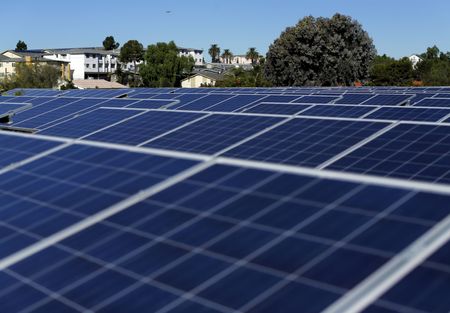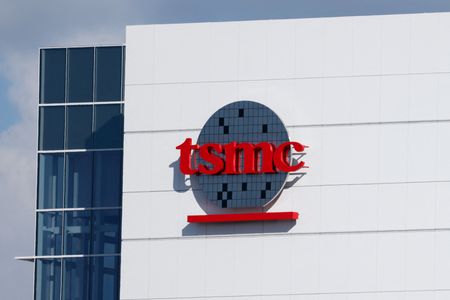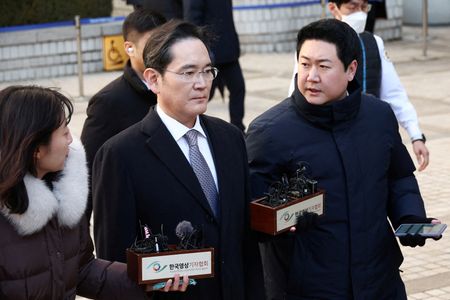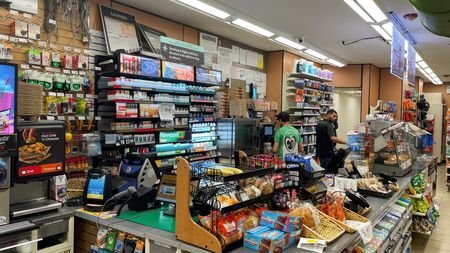SINGAPORE (Reuters) -Singapore’s non-oil domestic exports rose 13.0% in June from the same month a year earlier, government data showed on Thursday, outpacing analysts’ estimates as shipments of computers, integrated circuits and non-monetary gold rose significantly.
The rise compared with a Reuters poll forecast for annual growth of 5.0%, and followed a revised 3.9% fall in May.
Details of the month-on-month seasonally adjusted change in exports were not included in Enterprise Singapore’s statement.
Exports of electronic products such as integrated circuits and computers grew an annual 53.8% and 17.5% respectively, while non-electronic products such as non-monetary gold and specialised machinery grew by 211.9% and 31.4% respectively.
Exports to Hong Kong, Taiwan and South Korea increased in annual terms in June, while shipments to Japan, Indonesia and the U.S. decreased.
DBS senior economist Chua Han Teng said that although Singapore’s goods exports were resilient in the first half of the year, front-loading of shipments will be followed by a deceleration in trade and manufacturing production in the latter half of the year.
For the first six months of 2025, non-oil domestic exports rose 5.2% year-on-year.
“The city-state’s external demand will likely face downward pressures, due to still-high global trade frictions and continued uncertainty surrounding US tariffs, such as the potential imposition of U.S. sectoral tariffs on semiconductors and pharmaceutical goods,” he said.
U.S. President Donald Trump has notified some countries that tariffs of about 20% to 50% that will kick in from August 1, warning that any reprisals would draw a like-for-like response.
Southeast Asian neighbours Vietnam and Indonesia have both struck deals with Washington for tariffs below the levels Trump had initially threatened.
Trade-dependent Singapore has not yet received a letter from the Trump administration this round, and its exports are still subject to the 10% baseline tariff announced in April.
Singapore’s economy grew a faster-than-expected 4.3% in the second quarter from a year earlier, preliminary data showed, despite a dimming outlook due to global economic uncertainty.
Trade Minister Gan Kim Yong has warned that the implementation of U.S. tariffs and a diminishing front-loading effect would weigh on growth over the next six to 12 months.
Gan will visit the United States later this month to discuss tariff concessions for pharmaceutical exports as part of efforts to limit the economic impact of the trade war on Singapore.
(Reporting by Jun Yuan Yong; Editing by John Mair, Martin Petty)

